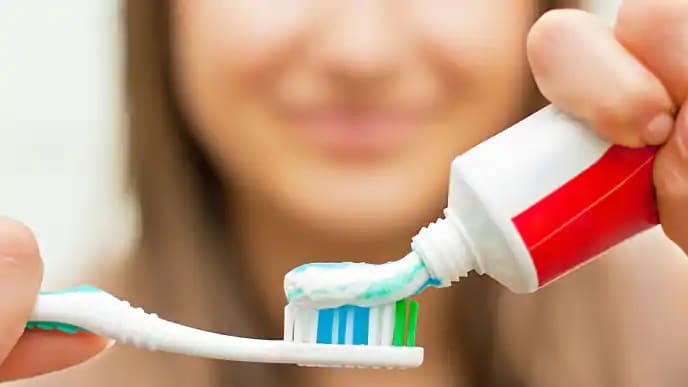Tip #1: Know How to Brush Your Teeth Properly
For clean teeth and a bright smile, brush your teeth twice a day, preferably after breakfast and before bedtime. It might be tempting to rush through this twice-daily ritual, but you should brush your teeth for a minimum of two minutes each time. Combined with the right tools and technique, regular brushing helps to effectively remove plaque — a sticky, colorless film of bacteria that constantly forms on your teeth and contributes to gum disease and tooth decay.
Tip #2: Learn How to Floss Your Teeth Correctly
While your toothbrush can remove most plaque, it cannot completely clean those hard-to-reach places between your teeth. That's why daily flossing is an essential part of your oral health care routine. When used correctly, floss can dislodge food particles and disrupt bacteria colonies that form along the gumline and between the teeth. Flossing helps prevent both cavities and gum disease.
Tip #3: Schedule Regular Dental Visits
Visit your dentist's office regularly for oral exams and professional cleanings. Regular dental visits can help identify oral health issues as early as possible and work to prevent them from occurring in the first place. Even if you are experiencing no symptoms, you may still have dental health problems only your dentist can diagnose. Many people schedule dental maintenance visits twice per year, but only your dental health professional can tell you how often you need checkups or oral cleanings based on your needs. If you are experiencing symptoms — such as tooth sensitivity, bleeding gums, or difficulty chewing — do not wait for your regular checkup. These symptoms may be a sign of a problem that requires immediate attention.
Tip #4: Eat Nutritiously for Healthy Teeth
Not surprisingly, the foods you eat directly impact your oral health. Filling your plate with whole foods — like fresh vegetables and lean proteins — can help support a healthy smile. If you're looking to improve your oral health through the foods and beverages you consume, start with these three strategies:
- Cut back on the sugar. The bacteria in your mouth that cause tooth decay feed on sugar, so limiting your sugar consumption is an easy way to improve your oral health. You can start by drinking fewer sugar-filled sodas and eating less processed foods that contain excessive sugar.
- Drink plenty of water. Drinking water will help wash away food and debris from your teeth and gums. But tap water also contains fluoride, which helps strengthen teeth and fight cavities.
- Limit snacking between meals. Constant snacking, including drinking sugar-filled beverages, gives your saliva less time to work to wash away the sugars that feed plaque-causing bacteria. Because the plaque is continuously feeding, it's also continually releasing acid that attacks your teeth and causes decay.
Tip #5 Make Oral Care Fun
When you dread an activity, you tend to put it off or avoid it altogether. So, find a way to add some fun into your oral care routine. Here are some ideas to start:
- Find the right tools. Spend time searching for the right toothbrush, toothpaste, and floss or interdental cleaner. Many effective options exist, so keep looking for the right color, shape, or flavor to suit your personal preferences.
- Track your progress. A reward system isn't just for children. If you're struggling to find motivation, give yourself a gold star for every time you brush or floss your teeth, then redeem a full week of stars for a simple treat.
- Pair with another (more fun) activity. Incentivize regular brushing by pairing it with an activity that you enjoy. For example, you can brush while listening to your favorite song or watching your favorite show.
Investing time and care into your oral health can provide lasting benefits. Follow these five tips to help keep your teeth and gums healthy and working as long as possible.
This article is intended to promote understanding of and knowledge about general oral health topics. It is not intended to be a substitute for professional advice, diagnosis or treatment. Always seek the advice of your dentist or other qualified healthcare provider with any questions you may have regarding a medical condition or treatment.
ORAL HEALTH QUIZ
What's behind your smile?
Take our Oral Health assessment to get the most from your oral care routine
ORAL HEALTH QUIZ
What's behind your smile?
Take our Oral Health assessment to get the most from your oral care routine















